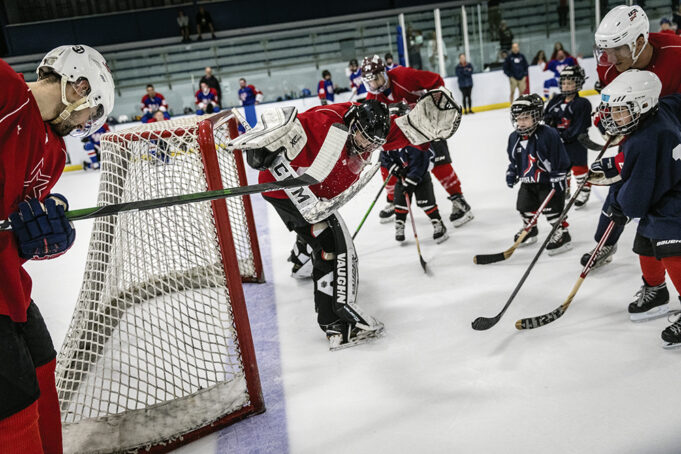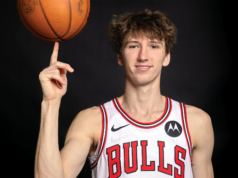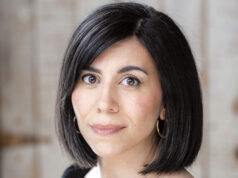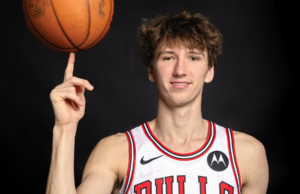By Maureen Callahan
Each June, 80 kids from every corner of the country come to Itasca to participate in Stan Mikita’s Hockey School for the Deaf and Hard of Hearing. It’s a one-of-a-kind summer camp for Deaf and Hard of Hearing (DHH) students to participate in an instructional hockey program while just being themselves among other DHH players.
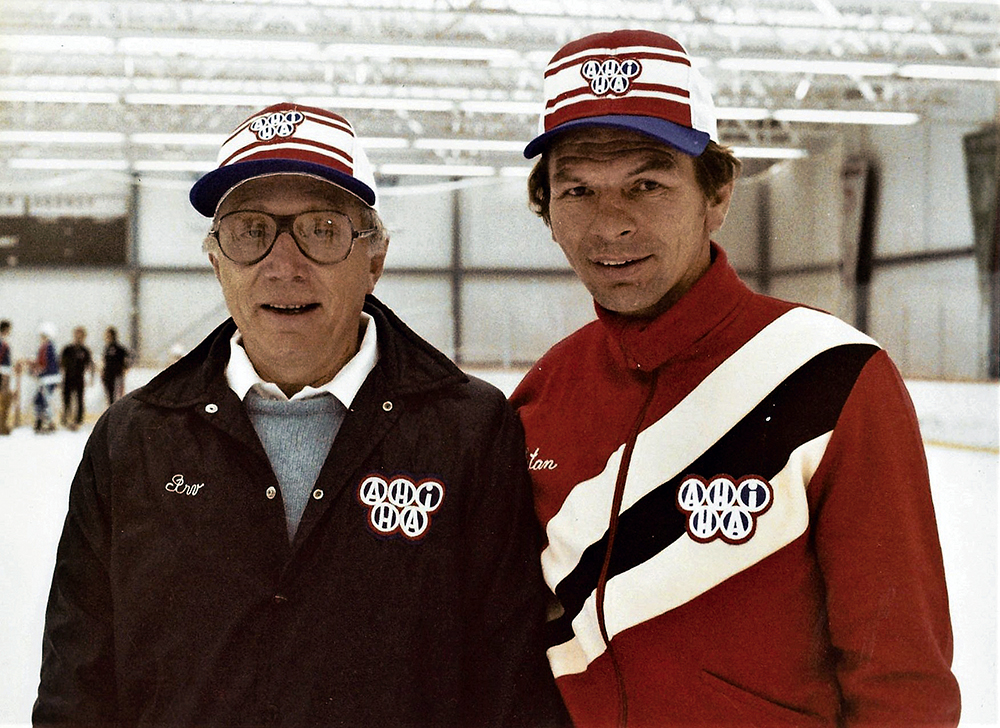
Players of every level of ability, along with their families, have the opportunity to build community. Parents can bounce ideas and solutions to problems off each other. Kids can make other DHH hockey friends who understand them.
Now in its 50th year, Stan Mikita’s Hockey School for the Deaf and Hard of Hearing has broadened hockey opportunities for thousands of DHH players. Half a century ago, former Chicago Blackhawks superstar, Stan Mikita, was approached by his friend, Irv Tiahnybik, a local business mogul and owner of Leon’s Sausage Company. Tiahnybik’s son, Lex, was a goalie who played in a local hockey league. He was Deaf.
Tiahnybik saw Lex being discriminated against due to his hearing loss. He wanted to create a place where Lex could be himself and spend a week playing hockey and learning new things without worrying about prejudice.
Tiahnybik called his good friend – Chicago Blackhawk, Stan Mikita – and asked him what he was doing that summer. As soon as Mikita heard Tiahnybik’s idea, he jumped at the chance to help.
Stan Mikita had immigrated from Slovakia to the United States via Canada. He rose through the ranks through hard work and grit. The NHL superstar could identify with the struggles his friend’s son experienced. “I think my dad was so willing to get involved because, as an immigrant, he knew what a language barrier meant when you’re trying to learn a game like hockey,” remembered Stan’s daughter, Jane Mikita Gneiser. “My dad wasn’t deaf, but he remembered the struggles he had incorporating into a sport at a language disadvantage.”
Through the combined efforts of Mikita’s hockey contacts and Tiahnybik’s business influence, the camp began in the summer of 1973. Kevin Delaney, himself DHH, is the Board President, as well as a program alum. “When I was a kid attending the camp in the 80s, we had some fabulous coaches from the Chicago Wolves and the University of Wisconsin. Other Blackhawks showed up, as their schedules permitted, to help. Gunzo’s Hockey Headquarters, the official outfitters of the Blackhawks, donated any needed equipment. Downers Grove natives Tony and Cammie Granato have also lent their time and talent to this worthy cause,” Delaney relayed. “We’ve been very lucky.”
“I think my dad was so willing to get involved because he understood, as an immigrant, what a language barrier means when you’re trying to learn a
game like hockey.”
– Jane Mikita Gneiser, daughter of Blackhawks hockey legend, Stan Mikita
While players must pay hotel and transportation costs, no coaching or rink fees are assessed for the week. The camp is entirely subsidized through the generosity of a large pool of donors. “Tiahnybik had a huge group of successful business contacts who helped him cover costs,” said Gneiser. “The donor base has grown over the years.”
To qualify, students must need a hearing device. Most participate in a Deaf program at school. Campers and their families stay at the Hyatt Itasca. Each day, they are bussed to The Edge Ice Arena in Bensenville, where they have skills instructions in the morning. Afternoons are spent playing games against local teams. “A few times, the opposing teams were offered earplugs so they could get an idea of what it would be like to play hockey without being able to hear,” said Delaney.
Other than that, it’s regular hockey, with just a few exceptions. To stop play, referees put their hands up in addition to blowing a whistle. There are lights on the boards that flash when play stops. “There’s still the typical noise of the game – skates and sticks brushing the ice and pucks slapping the boards,” said Delaney. “The only thing missing is the yelling between the players you often hear at a regular hockey game,” he laughed. There are interpreters on the bench if needed.
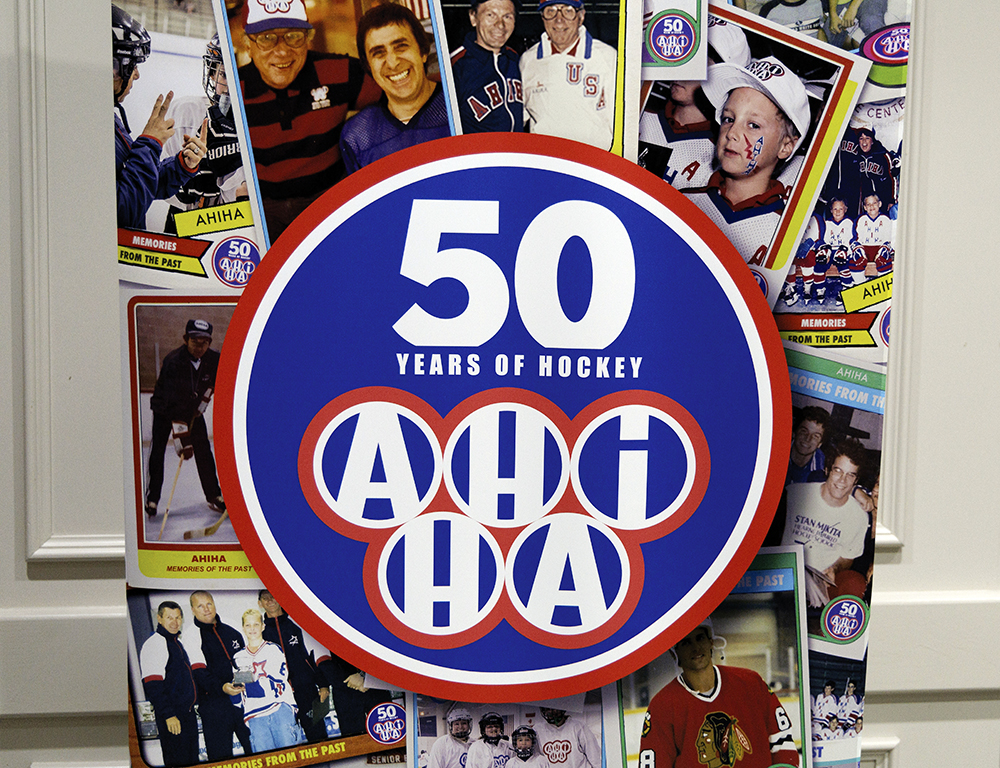
While hockey instruction was the initial reason for the camp, Gneiser sees another important angle. “It’s not just a school for hockey instruction,” she said. “It’s about families meeting other families in the same circumstances. My dad got our whole family involved when we were kids. We got to know a lot of those kids’ families and are still friends now,” she said.
“Publicity wasn’t my dad’s forte, but he lent his name to the school, knowing it would help them gain notoriety and therefore get the word out for fundraising and instructional help from other Blackhawks,” said Gneiser.
It worked.
There are countless awards to Stan Mikita’s name. But the plaque on his statue outside the United Center immortalizes him the way fans best remember him. ‘Keep your feet grounded and always remember where you are from,’ reads the inscription. It’s reminiscent of his attitude toward life, including this project.
Registration for the 2024 Stan Mikita Hockey School for the Deaf and Hard of Hearing is ongoing. This year’s dates are June 8-15, 2024. For registration information or to donate, visit ahiha.org. ■


